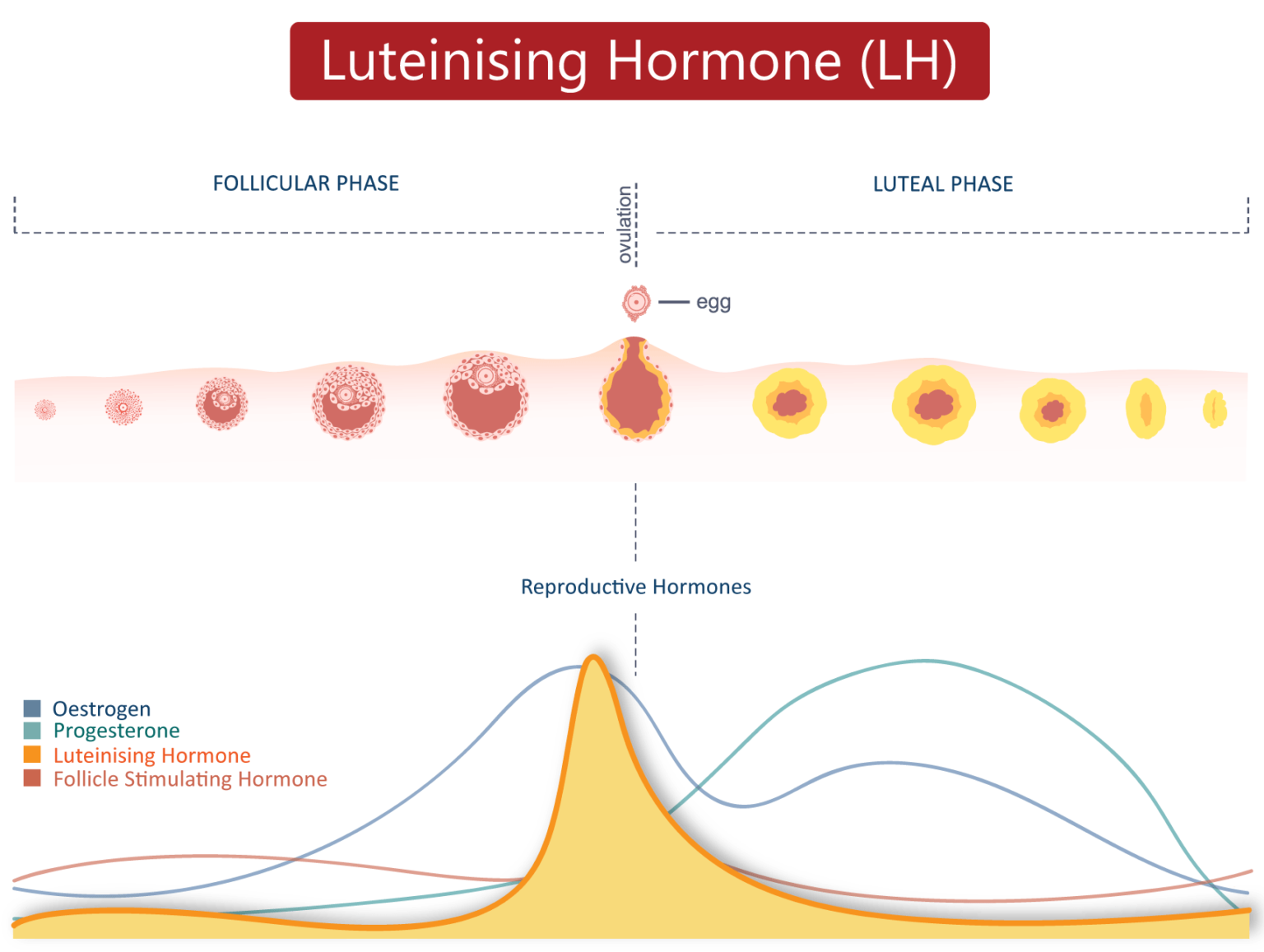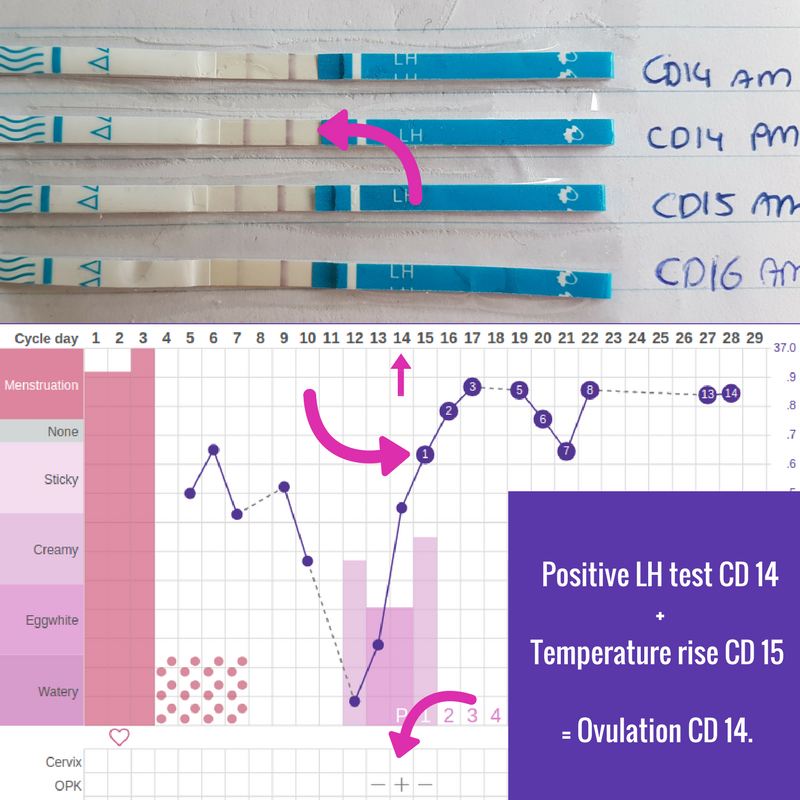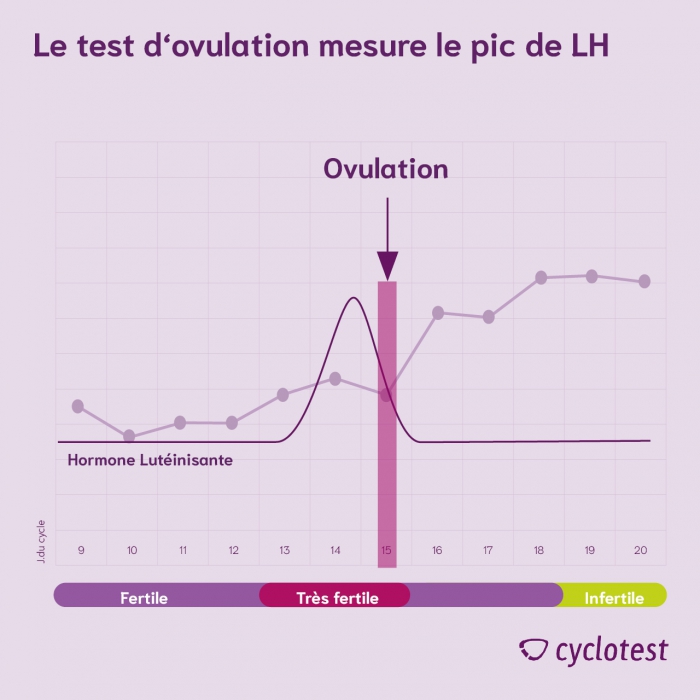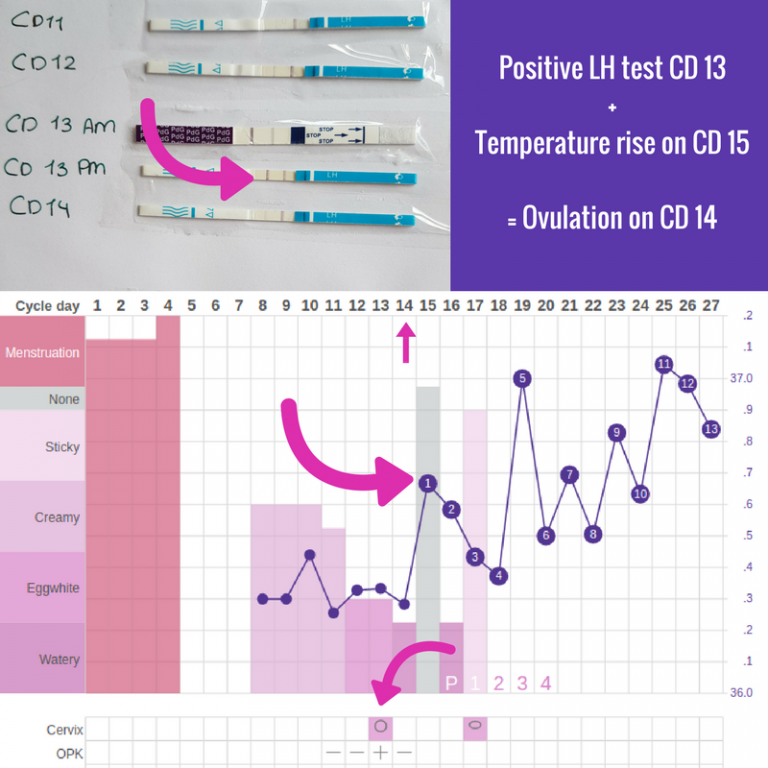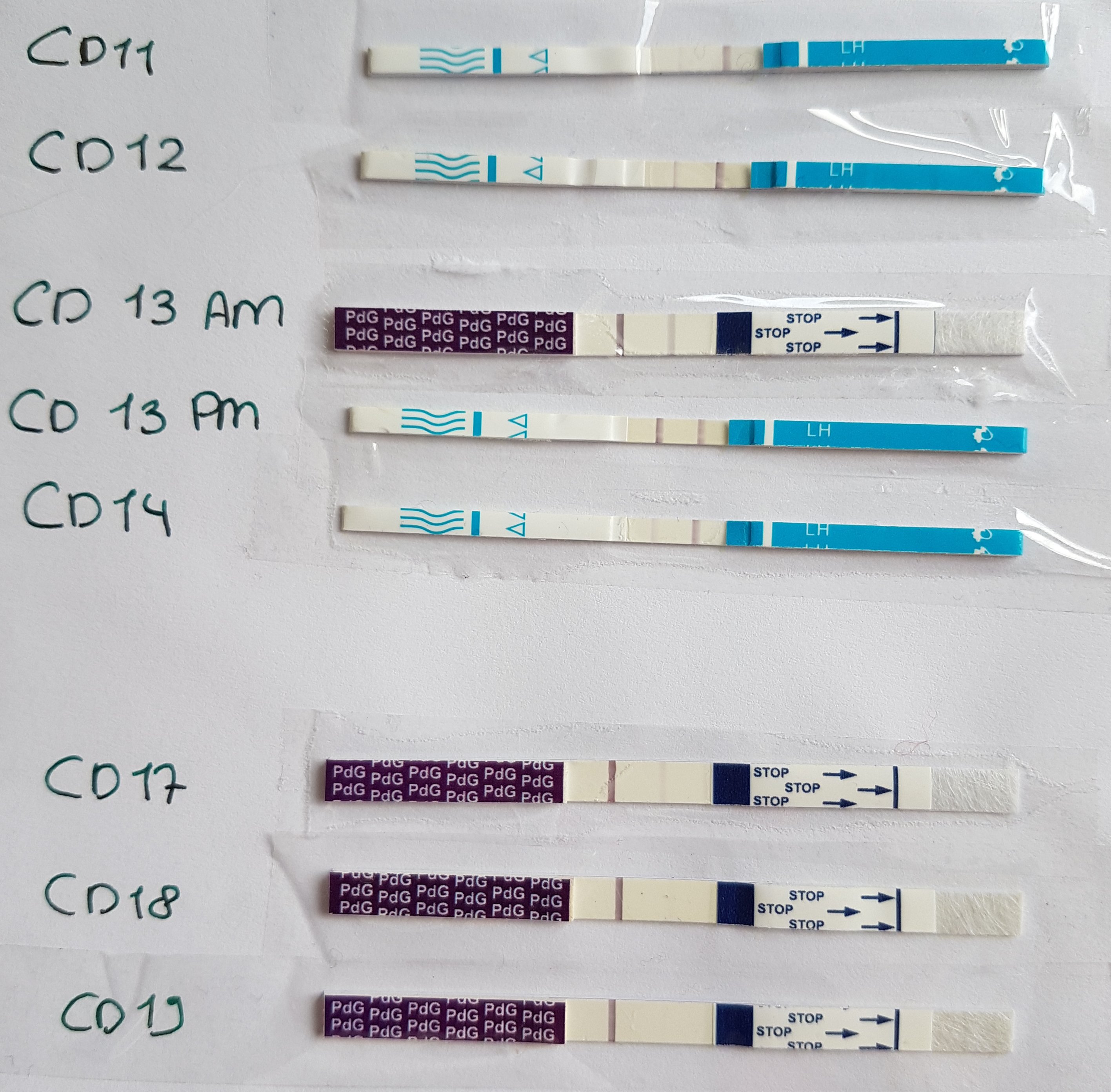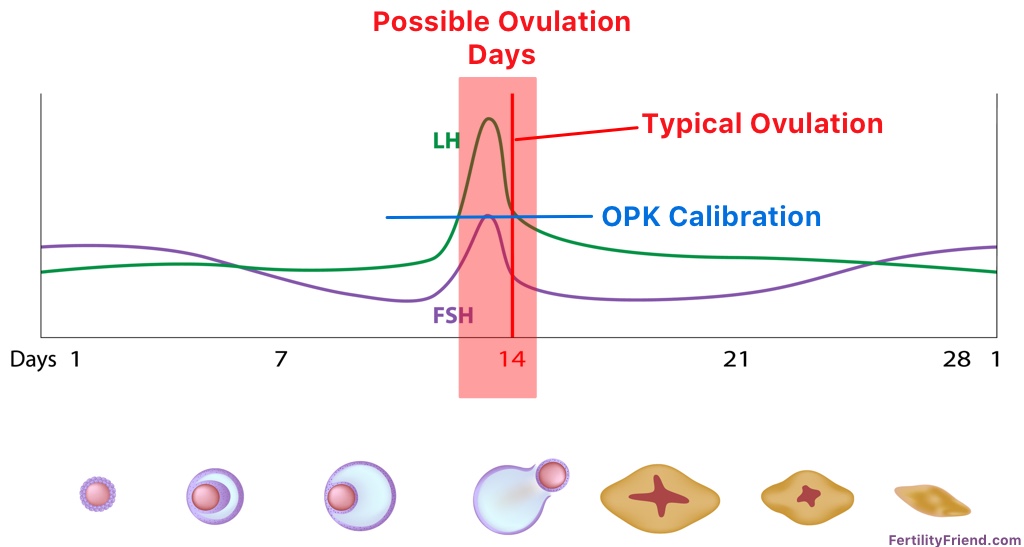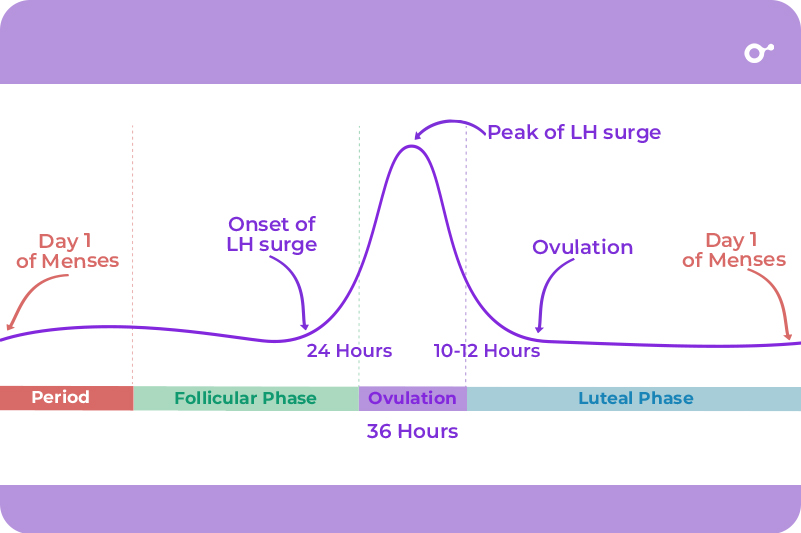Lh Ovulation
Lh Ovulation - Lh is the hormone that surges before ovulation. If your pituitary gland isn’t releasing enough lh and fsh, it can cause anovulation. After ovulation, the ruptured follicle forms a corpus luteum (a temporary endocrine gland). A positive result means you’re about to ovulate (usually within 36 hours). Lh activates the mature egg to escape the follicle. They work by detecting lh (luteinizing hormone) in your pee. Toward the end of the follicular phase, high estrogen levels trigger your pituitary gland to release a surge of luteinizing hormone (lh), the hormone associated with the luteal phase. At about day 14 in the menstrual cycle, a sudden surge in lh causes the mature follicle to rupture and release its egg (ovulation). A surge in lh causes your ovary to release a mature egg around the second week of each menstrual cycle. A high lh level around this time means that you’re at that moment in your cycle when you’re most likely.
A high lh level around this time means that you’re at that moment in your cycle when you’re most likely. A positive result means you’re about to ovulate (usually within 36 hours). After ovulation, the ruptured follicle forms a corpus luteum (a temporary endocrine gland). They work by detecting lh (luteinizing hormone) in your pee. A surge in lh causes your ovary to release a mature egg around the second week of each menstrual cycle. Lh activates the mature egg to escape the follicle. If your pituitary gland isn’t releasing enough lh and fsh, it can cause anovulation. Toward the end of the follicular phase, high estrogen levels trigger your pituitary gland to release a surge of luteinizing hormone (lh), the hormone associated with the luteal phase. At about day 14 in the menstrual cycle, a sudden surge in lh causes the mature follicle to rupture and release its egg (ovulation). Lh is the hormone that surges before ovulation.
If your pituitary gland isn’t releasing enough lh and fsh, it can cause anovulation. After ovulation, the ruptured follicle forms a corpus luteum (a temporary endocrine gland). Lh activates the mature egg to escape the follicle. Lh is the hormone that surges before ovulation. A surge in lh causes your ovary to release a mature egg around the second week of each menstrual cycle. Toward the end of the follicular phase, high estrogen levels trigger your pituitary gland to release a surge of luteinizing hormone (lh), the hormone associated with the luteal phase. A positive result means you’re about to ovulate (usually within 36 hours). At about day 14 in the menstrual cycle, a sudden surge in lh causes the mature follicle to rupture and release its egg (ovulation). A high lh level around this time means that you’re at that moment in your cycle when you’re most likely. They work by detecting lh (luteinizing hormone) in your pee.
Optional LH Testing Fertility Charting
A surge in lh causes your ovary to release a mature egg around the second week of each menstrual cycle. They work by detecting lh (luteinizing hormone) in your pee. A positive result means you’re about to ovulate (usually within 36 hours). If your pituitary gland isn’t releasing enough lh and fsh, it can cause anovulation. Lh is the hormone.
How to use cheap ovulation tests LH strips Ingefleur Fertility Homeopath
A high lh level around this time means that you’re at that moment in your cycle when you’re most likely. Lh activates the mature egg to escape the follicle. Lh is the hormone that surges before ovulation. After ovulation, the ruptured follicle forms a corpus luteum (a temporary endocrine gland). A surge in lh causes your ovary to release a.
Test d'ovulation comment ça marche ? cyclotest
Lh is the hormone that surges before ovulation. At about day 14 in the menstrual cycle, a sudden surge in lh causes the mature follicle to rupture and release its egg (ovulation). They work by detecting lh (luteinizing hormone) in your pee. If your pituitary gland isn’t releasing enough lh and fsh, it can cause anovulation. Toward the end of.
Tracking LH surges helps identify fertility windows Luteinizing
At about day 14 in the menstrual cycle, a sudden surge in lh causes the mature follicle to rupture and release its egg (ovulation). A high lh level around this time means that you’re at that moment in your cycle when you’re most likely. After ovulation, the ruptured follicle forms a corpus luteum (a temporary endocrine gland). A positive result.
Understanding luteinizing hormone and how it relates to fertility
Toward the end of the follicular phase, high estrogen levels trigger your pituitary gland to release a surge of luteinizing hormone (lh), the hormone associated with the luteal phase. After ovulation, the ruptured follicle forms a corpus luteum (a temporary endocrine gland). They work by detecting lh (luteinizing hormone) in your pee. If your pituitary gland isn’t releasing enough lh.
How to use cheap ovulation tests LH strips Ingefleur Fertility Homeopath
A high lh level around this time means that you’re at that moment in your cycle when you’re most likely. They work by detecting lh (luteinizing hormone) in your pee. Lh is the hormone that surges before ovulation. Toward the end of the follicular phase, high estrogen levels trigger your pituitary gland to release a surge of luteinizing hormone (lh),.
Lh Surge Chart And Ovulation
At about day 14 in the menstrual cycle, a sudden surge in lh causes the mature follicle to rupture and release its egg (ovulation). They work by detecting lh (luteinizing hormone) in your pee. Lh activates the mature egg to escape the follicle. A high lh level around this time means that you’re at that moment in your cycle when.
How to use cheap ovulation tests LH strips Ingefleur Fertility Homeopath
A surge in lh causes your ovary to release a mature egg around the second week of each menstrual cycle. A positive result means you’re about to ovulate (usually within 36 hours). Lh activates the mature egg to escape the follicle. A high lh level around this time means that you’re at that moment in your cycle when you’re most.
How to read an OPK
If your pituitary gland isn’t releasing enough lh and fsh, it can cause anovulation. They work by detecting lh (luteinizing hormone) in your pee. A positive result means you’re about to ovulate (usually within 36 hours). Lh activates the mature egg to escape the follicle. Lh is the hormone that surges before ovulation.
LH Levels & Surges What Does a ‘Normal’ LH Level Look Like? Inito
They work by detecting lh (luteinizing hormone) in your pee. Lh activates the mature egg to escape the follicle. Toward the end of the follicular phase, high estrogen levels trigger your pituitary gland to release a surge of luteinizing hormone (lh), the hormone associated with the luteal phase. At about day 14 in the menstrual cycle, a sudden surge in.
A High Lh Level Around This Time Means That You’re At That Moment In Your Cycle When You’re Most Likely.
A surge in lh causes your ovary to release a mature egg around the second week of each menstrual cycle. At about day 14 in the menstrual cycle, a sudden surge in lh causes the mature follicle to rupture and release its egg (ovulation). After ovulation, the ruptured follicle forms a corpus luteum (a temporary endocrine gland). Lh is the hormone that surges before ovulation.
Lh Activates The Mature Egg To Escape The Follicle.
If your pituitary gland isn’t releasing enough lh and fsh, it can cause anovulation. Toward the end of the follicular phase, high estrogen levels trigger your pituitary gland to release a surge of luteinizing hormone (lh), the hormone associated with the luteal phase. They work by detecting lh (luteinizing hormone) in your pee. A positive result means you’re about to ovulate (usually within 36 hours).
